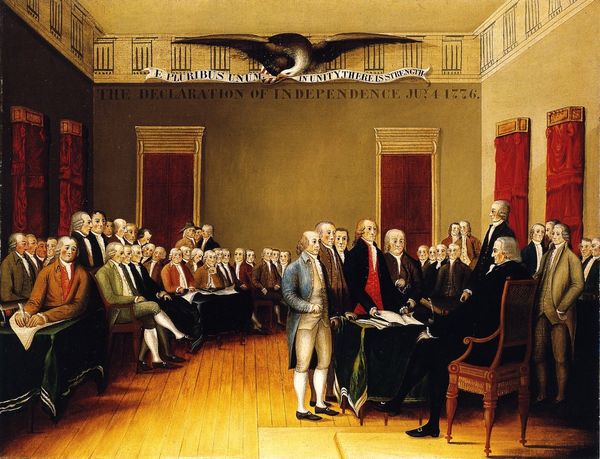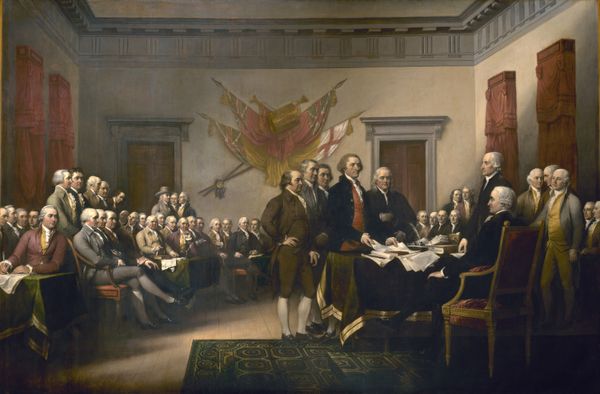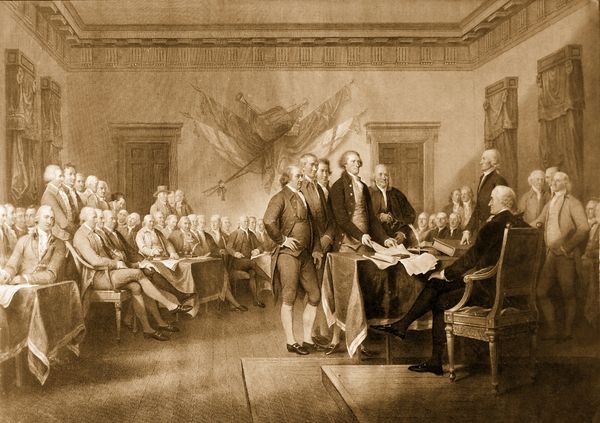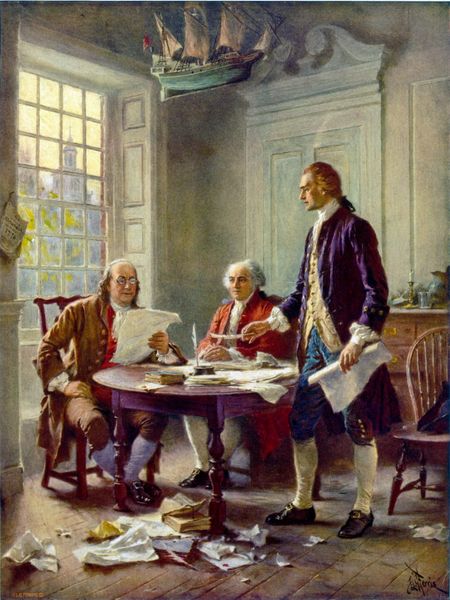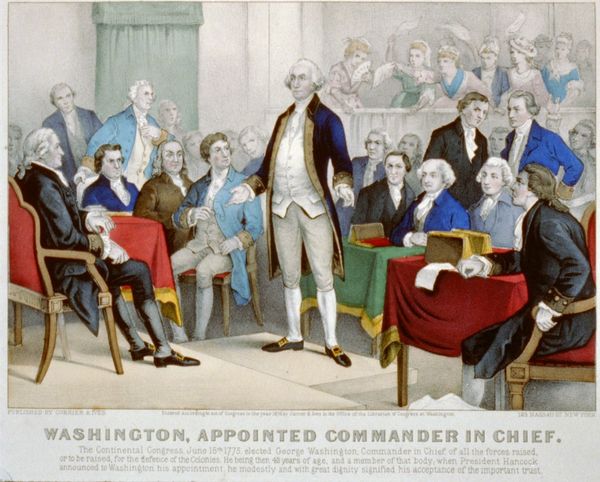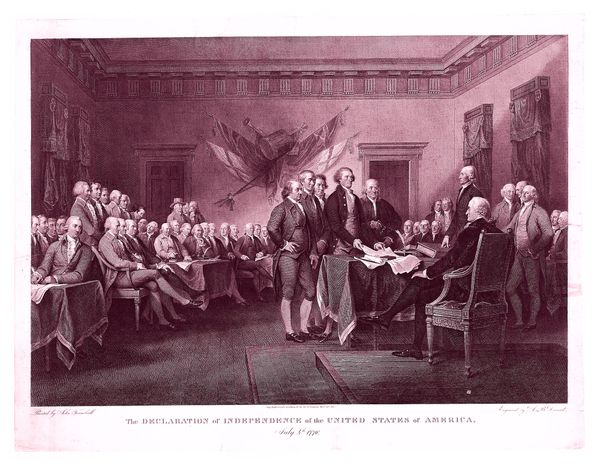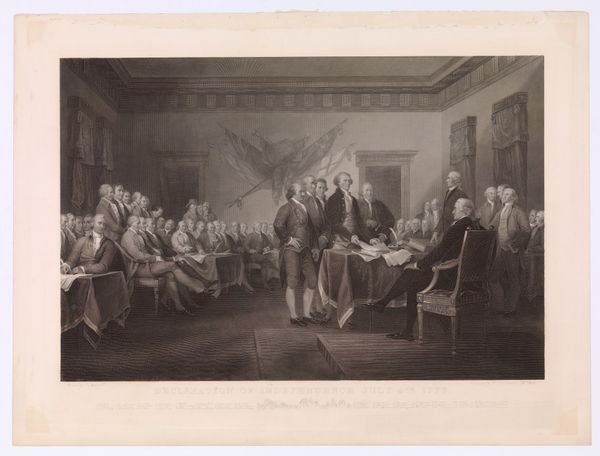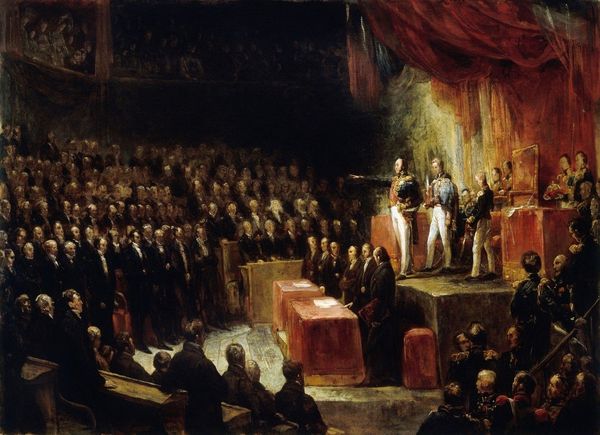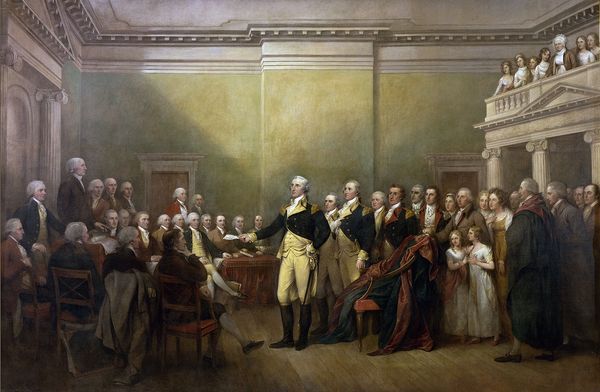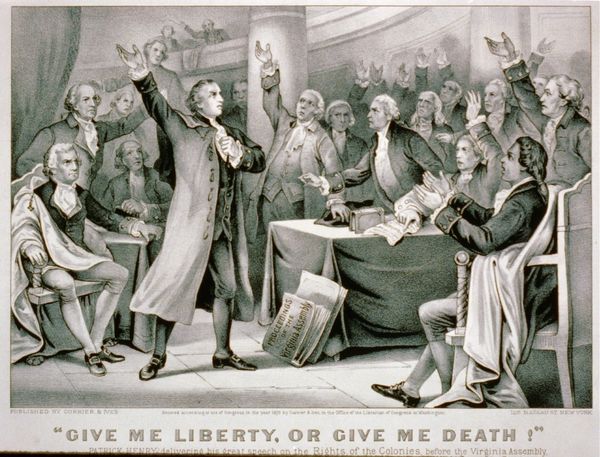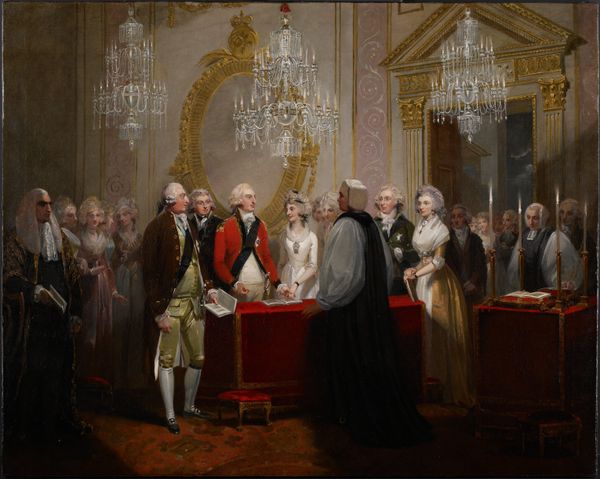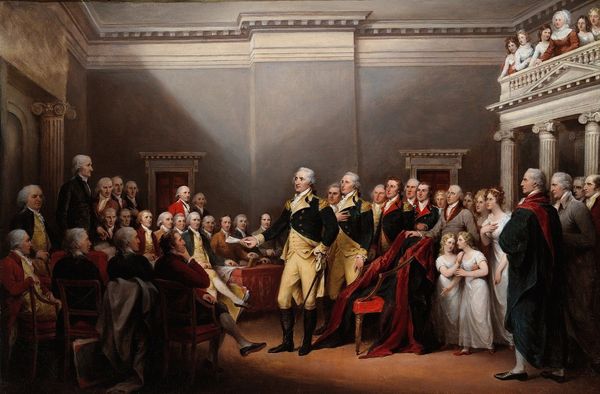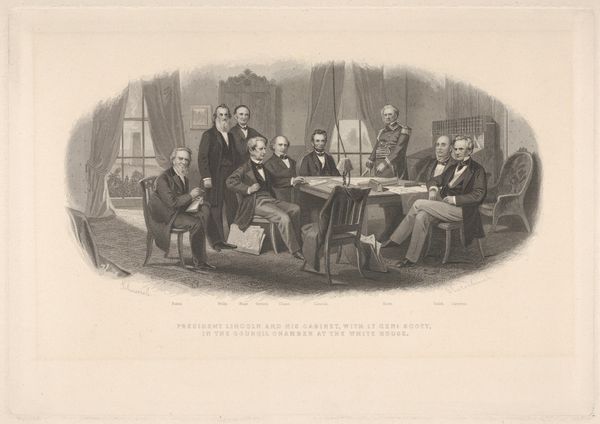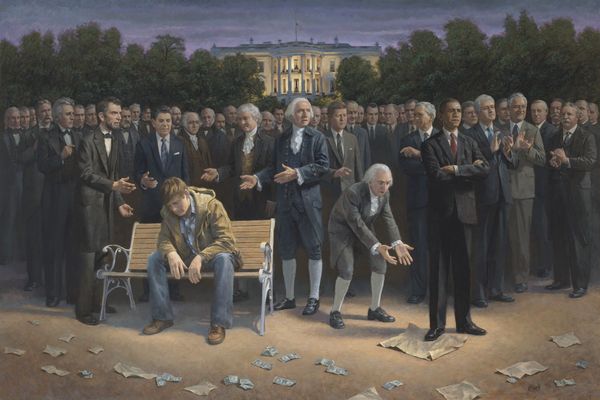
painting, oil-paint
#
portrait
#
narrative-art
#
painting
#
oil-paint
#
group-portraits
#
history-painting
#
academic-art
#
portrait art
#
realism
Copyright: Public domain
Edward Hicks, active in the first half of the 19th century, created "The Declaration of Independence" using oil on canvas, a readily available material at the time. The flat application of paint, combined with the rendering of light and shadow, is typical of American folk painting from this period. Hicks was a Quaker minister and sign painter, which lends a particular inflection to his fine art. He employed techniques learned from both worlds. The skilled labor involved, reflects the values and aspirations of a newly formed nation. The materiality of the painting-- the smooth canvas, the careful application of oil paint-- stands in contrast to the revolutionary subject matter, connecting labor, politics, and consumption. By considering the materials and making, we see that the Declaration of Independence is not just a document of political theory, but also an artifact of early American ingenuity and craftsmanship.
Comments
No comments
Be the first to comment and join the conversation on the ultimate creative platform.
